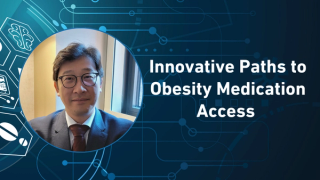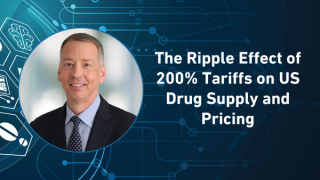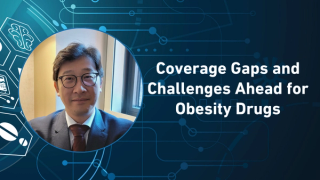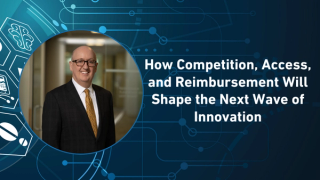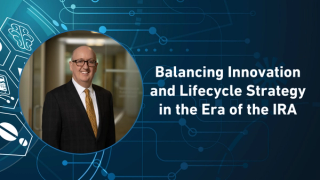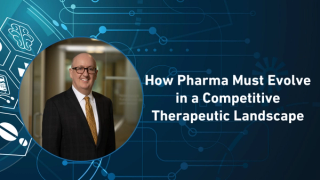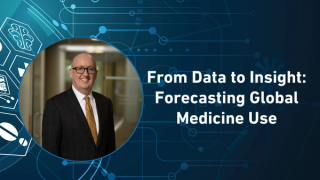
Market Access
Latest News

Latest Videos

Podcasts
More News

This episode of Pharma Pulse explores a major review finding no link between maternal acetaminophen use and autism or ADHD, CMS launching initiatives to cut Medicaid drug costs, and Eli Lilly expanding its gene therapy collaborations.

Launching next year, the new CMS Innovation Center initiative—known as the GENEROUS Model—aims to align Medicaid drug prices with global standards, reduce prescription spending, and strengthen the program’s long-term sustainability through fairer state purchasing and transparent pricing rules.

This episode of Pharma Pulse discusses FDA’s growing National Priority Voucher initiative, fresh data on oral semaglutide’s cardiometabolic impact, and Mark Cuban’s latest drug addition that signals key shifts in innovation, access, and affordability across the pharmaceutical landscape.

Lilly announced a new agreement with the Trump administration to expand access to its GLP-1 therapies, including Zepbound and orforglipron, offering the drugs to Medicare beneficiaries for $50 per month and through Medicaid programs starting in 2026.

Pharma’s push into direct-to-patient sales is reshaping the front end of drug distribution, but wholesalers like Cencora, McKesson, and Cardinal Health remain indispensable as the backbone of the industry’s regulated, specialty, and logistics infrastructure.

As the three models converge, expect a bigger role for sales reps, minimal impact on incentive compensation, and a boon to the healthcare system.
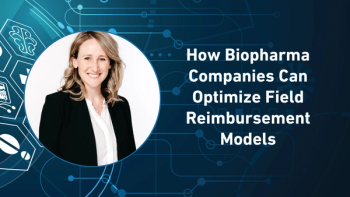
In the final part of her Pharma Commerce video interview, Megan Wetzel, VP, product, access & affordability at CoverMyMeds, shares how the right field reimbursement model structure ensures field teams have the insights and tools they need to overcome coverage barriers and accelerate patient access to therapy.
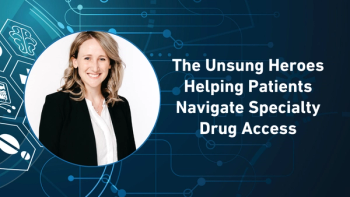
In the third part of her Pharma Commerce video interview, Megan Wetzel, VP, product, access & affordability at CoverMyMeds, explains that by educating provider offices on payer requirements, prior authorizations, and denial trends, field reimbursement managers help streamline complex reimbursement processes and reduce treatment delays.
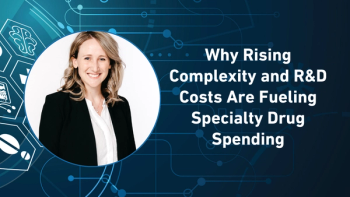
In the second part of her Pharma Commerce video interview Megan Wetzel, VP, product, access & affordability at CoverMyMeds, describes how high development costs, personalized treatment models, and an aging population are intensifying the imbalance.

At HLTH 2025, the entrepreneur announced a collaboration between Cost Plus Drugs and President Trump’s TrumpRx platform aimed at improving transparency, reducing drug costs, and reshaping how Americans access their prescriptions.

Aetna, Devoted Health, and UnitedHealth headline the list best Medicare Advantage insurers for next year, while Centene and Humana lead the pack in Part D prescription drug coverage.

A planned 100% tariff on branded and patented drugs from Singapore is being postponed as US and Singapore officials explore potential exemptions.

The appellate court upheld Medicare’s authority to negotiate lower drug prices under the Inflation Reduction Act, following similar rulings against AstraZeneca, Bristol Myers Squibb, and Novartis.

Amid intensified competition—and evolving IRA and PBM dynamics—leaders in the access space must now adopt a strategist mindset.

Marketed as cost-saving tools, AFPs can also strain safety-net resources.

From patent cliffs and government price controls, to self-pay models and staff-model HMOs, a look at the forces that could deflate the bubble—and those factors likely to keep it afloat a while longer.

Amid pressures on pharma to match the lowest international prices, experts warn of “policy laundering” and discriminatory impact.

This guide shows how to move beyond rear-view reporting and transform data into actionable strategies that drive payer engagement, sharpen planning, and maximize brand performance.

Capturing insights from executives and industry experts on the biggest challenges shaping pharma today, from drug pricing pressures and access barriers to supply chain shifts, digital adoption, and evolving patient-centered care strategies.

The draft assessment finds that the popular weight loss drugs are costly but worth the price tag, while also urging for broader coverage and policy solutions.

By reducing waste, improving forecasting, and strengthening payer negotiations, these technologies are helping pharmaceutical companies unlock efficiency, accelerate adoption, and differentiate in competitive markets.

The merger integrates EVERSANA’s commercialization services with Waltz Health’s AI-powered payer tools to address patient affordability, streamline drug access, and reduce costs for high-expense therapies such as GLP-1s.

This episode of Pharma Pulse covers a $290 million False Claims Act ruling against CVS Caremark, a new report showing most small medical practices fall short on HIPAA compliance, and research revealing why pharmacists underreport adverse drug reactions.

A federal judge tripled damages against the pharmacy benefits manager after finding it encouraged inflated Medicare drug claims and underpaid pharmacies.

Payer-level reporting should do more than track performance—it must guide strategy, focus resources, and drive measurable brand impact.




